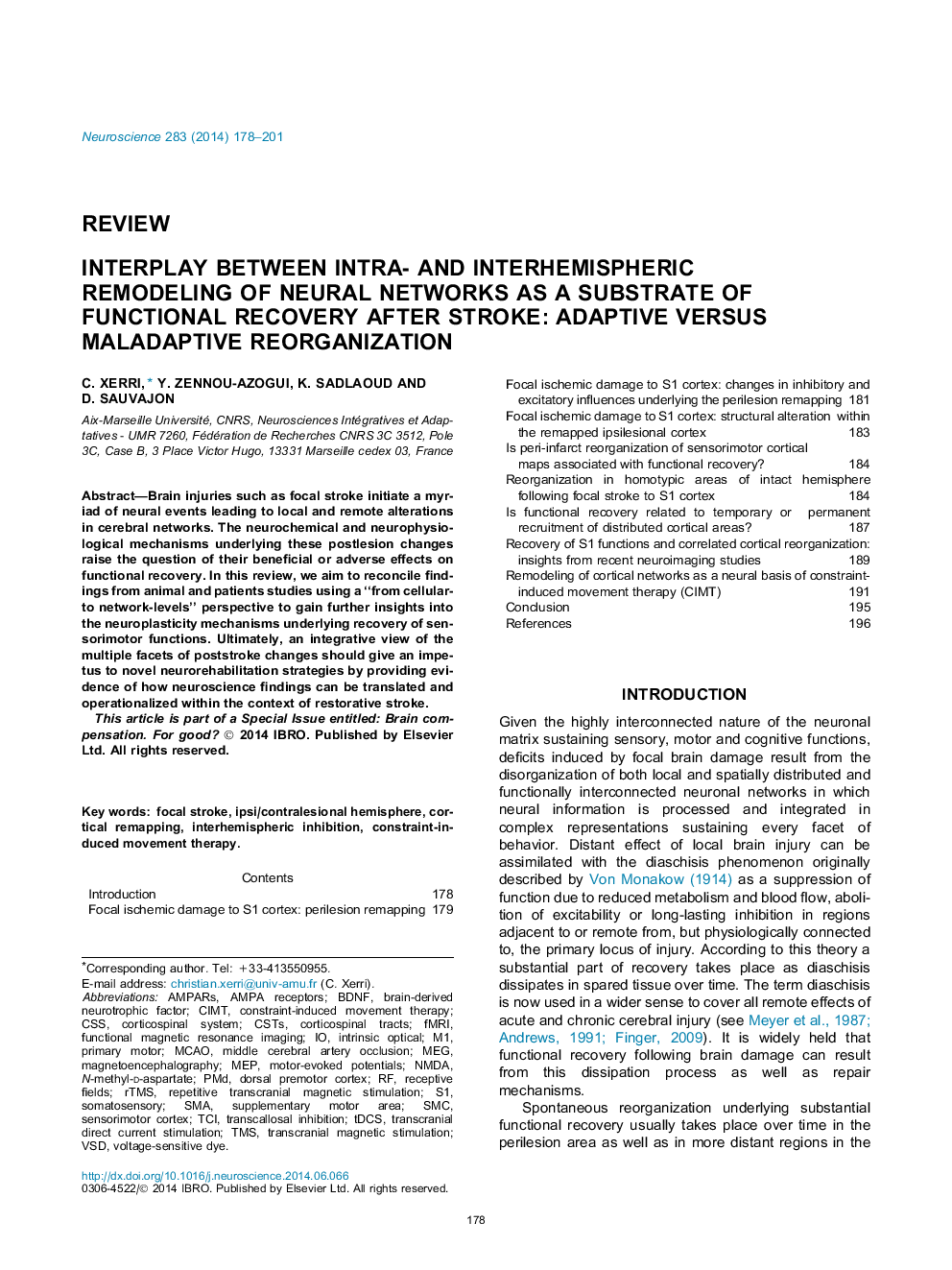| Article ID | Journal | Published Year | Pages | File Type |
|---|---|---|---|---|
| 6272816 | Neuroscience | 2014 | 24 Pages |
â¢Changes in inhibitory and excitatory influences underly perilesion as well as remote cortical remapping after focal stroke.â¢Alterations of interhemispheric imbalance impact on functional deficits and influence recovery.â¢The recruitment of distributed cortical networks may induce adverse or beneficial effects on functional recovery.â¢Modulation of interhemispheric balance is a neural basis of constraint-induced-movement therapy.
Brain injuries such as focal stroke initiate a myriad of neural events leading to local and remote alterations in cerebral networks. The neurochemical and neurophysiological mechanisms underlying these postlesion changes raise the question of their beneficial or adverse effects on functional recovery. In this review, we aim to reconcile findings from animal and patients studies using a “from cellular-to network-levels” perspective to gain further insights into the neuroplasticity mechanisms underlying recovery of sensorimotor functions. Ultimately, an integrative view of the multiple facets of poststroke changes should give an impetus to novel neurorehabilitation strategies by providing evidence of how neuroscience findings can be translated and operationalized within the context of restorative stroke.
